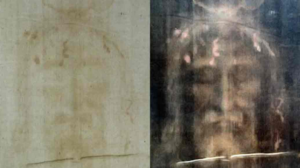In the tumultuous backdrop of Jerusalem in 33 AD, the narrative of Jesus Christ’s final days unfolded dramatically. Following his triumphal entry into the city and subsequent confrontation within the Temple, Jesus faced arrest by Jewish authorities and a trial under Roman rule. His crucifixion and hurried burial laid the groundwork for one of Christianity’s most enduring mysteries: the Shroud of Turin.
The Shroud, believed by many to be the burial cloth of Jesus, has long captivated scholars and believers alike. Despite carbon dating in 1988 suggesting a medieval origin, skepticism lingers due to potential contamination from a 1532 fire and subsequent restoration efforts by Poor Clare nuns. Recent investigations, however, present compelling evidence challenging this timeline. Comparisons with ancient linen samples reveal aging patterns consistent with a first-century origin, casting doubt on previous dating methods.
Further intrigue surrounds experiments involving ultraviolet lasers, which hint at a sophisticated process behind the Shroud’s enigmatic image. While medieval technology falls short of explaining the intricate details, the hypothesis of a miraculous event, such as the Transfiguration described in biblical accounts, offers a tantalizing explanation.
F35: Why the pilot’s helmet costs $400,000
For believers, the Shroud serves as a tangible link to the resurrection of Jesus, embodying the core tenets of their faith. As scientific inquiry delves deeper into its origins, the Shroud of Turin remains a symbol of the enduring power of spirituality and the eternal quest for understanding in the face of history’s greatest mysteries.
Source: Ancient Origins
Ask me anything
Explore related questions





